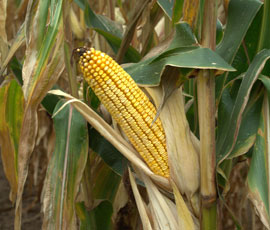Poland imposes ban on Monsanto GM maize

Poland will become the latest European country to announce a ban on growing a Monsanto GM maize on its territory.
Agriculture minister Marek Sawicki announced that the country would impose a complete ban on growing the MON810 genetically modified maize variety.
The move follows recent protests last month in Warsaw by around 1,500 beekeepers and anti-GM protesters who dumped thousands of dead bees on the steps of the Ministry of Agriculture.
Mr Sawicki told the press that this particular strain of maize could have a harmful effect on dwindling bee populations in his country.
Poland’s announcement comes less than a month after seven EU countries – Belgium, Britain, Bulgaria, France, Germany, Ireland and Slovakia – blocked a proposal by the Danish EU presidency to allow the cultivation of GM plants on the continent.
Seven days after that, France imposed a temporary ban on the growing of MON810 on its territory.
MON810 maize, known by its trade name YieldGuard, has been genetically modified to produce toxins that kill insect pests that rob crop yield. But some experts claim it can also be damaging for plants and animals.
Talks on allowing the growing of GM plants on EU soil are now at a stalemate and no clear majority has emerged among the 27 member states.
But anti-GM campaigners are viewing the bans imposed by Poland and France as evidence of a renewed backlash against GMs in the EU. Last year, Hungary destroyed 1,000 acres of maize, found to have been grown with GM seeds.
Last year, GM crops were grown by about 16.7 million farmers in 29 countries.

